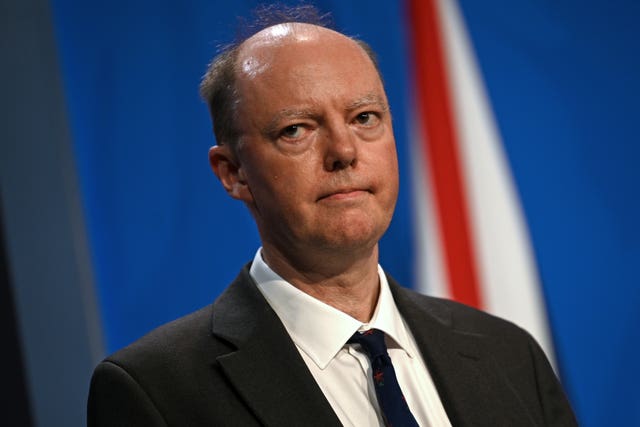
Shelagh Fogarty 1pm - 4pm
2 January 2022, 08:04

After a year that saw the UK host the Cop26 summit, experts have raised concern over an increase in climate misinformation.
Covid-19 conspiracy groups may pivot to pushing climate misinformation in 2022, experts have warned.
Ciaran O’Connor, an analyst at the Institute for Strategic Dialogue (ISD), told the PA news agency that coronavirus misinformation on topics such as vaccines and lockdowns could evolve to focus on climate policy.
“‘Green lockdowns’ is a term that’s bandied about in these conspiracy communities… that’s a merging of Covid worlds and climate disinformation worlds,” he said.
Mr O’Connor said conspiracy groups “will frame” climate policy as a “loss of civil liberties and loss of freedoms”.
“If you think about the Covid protest movements – be it anti-mask, anti-lockdown, or anti-vaccines – the branding and the language that’s been used by these kinds of conspiracy units has always been around,” he said.
“This is a civil liberties argument.
“The climate dialogue, rhetoric and discussion is gonna be rolled into that kind of civil liberties discussion, I think (that) is where you’re going to see a lot of these groups go.”
Dr Jonathan Bright, an associate professor at the Oxford Internet Institute, agreed, adding that there “could be more activity” from climate conspiracy groups in 2022.
“I think people are going to be thinking about climate change misinformation quite a lot,” Mr Bright told PA.

The experts were also concerned that conspiracy groups and communities have traded mainstream platforms, such as Facebook and Twitter, for Telegram – a platform with comparatively relaxed content guidelines.
“Telegram has… taken a very robust ‘we’re not interested approach’ to any media pressure to get it to moderate its content,” Dr Bright said.
Mr O’Connor added: “Telegram has become the platform of choice for far-right, extreme right wing groups, for conspiracy communities, (and) for extremist communities in general. Facebook and YouTube… they do have community guidelines, they do enforce them.
“Telegram takes largely a hands off approach to this. They have bare bones terms of service. That means that essentially they only take down threats of violence and child pornography and things like this.
“What that means is that Telegram is a safe space for conspiracy communities.”
The experts also pointed to the fact that online conspiracies are increasingly feeding real-world activity.

In February, footage emerged of a man confronting England’s chief medical officer Sir Chris Whitty on the street, accusing him of lying about coronavirus case numbers.
In October, protesters were filmed entering Colchester Hospital in Essex and serving staff with bogus legal papers accusing them of “crimes against humanity”.
And earlier in December, anti-vaxxer Piers Corbyn was arrested on suspicion of encouraging people to attack MPs’ offices.
“Online actions have offline consequences,” Mr O’Connor said.
“What we’re seeing in relation to that idea… is the increased threat especially towards public health officials, towards politicians, and even towards frontline staff, people who are working to protect people.”

The Department for Digital, Culture, Media and Sport is responsible for the Government’s response to disinformation.
It announced a raft of measures over the past year to combat the issue, including funding training for libraries, youth workers, and teachers to help build media literacy in young people.
Tech and digital economy minister Chris Philp said: “Our mission is to make the online world a better and safer place and tackling disinformation is a vital part of this work.
“Our new online safety laws will create clear requirements for tech platforms to tackle disinfo and misinfo and our media literacy strategy will provide people with the skills they need to be able to tell fact from fiction online.”
Telegram had not responded to a PA request for comment at the time of publication.